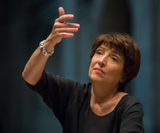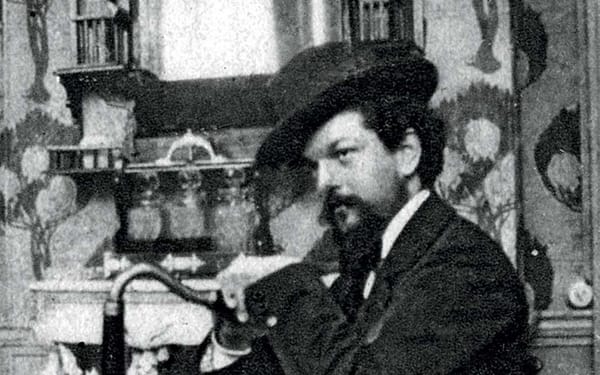Orfeo, Crossing the Ganges: A Franco-Indian project
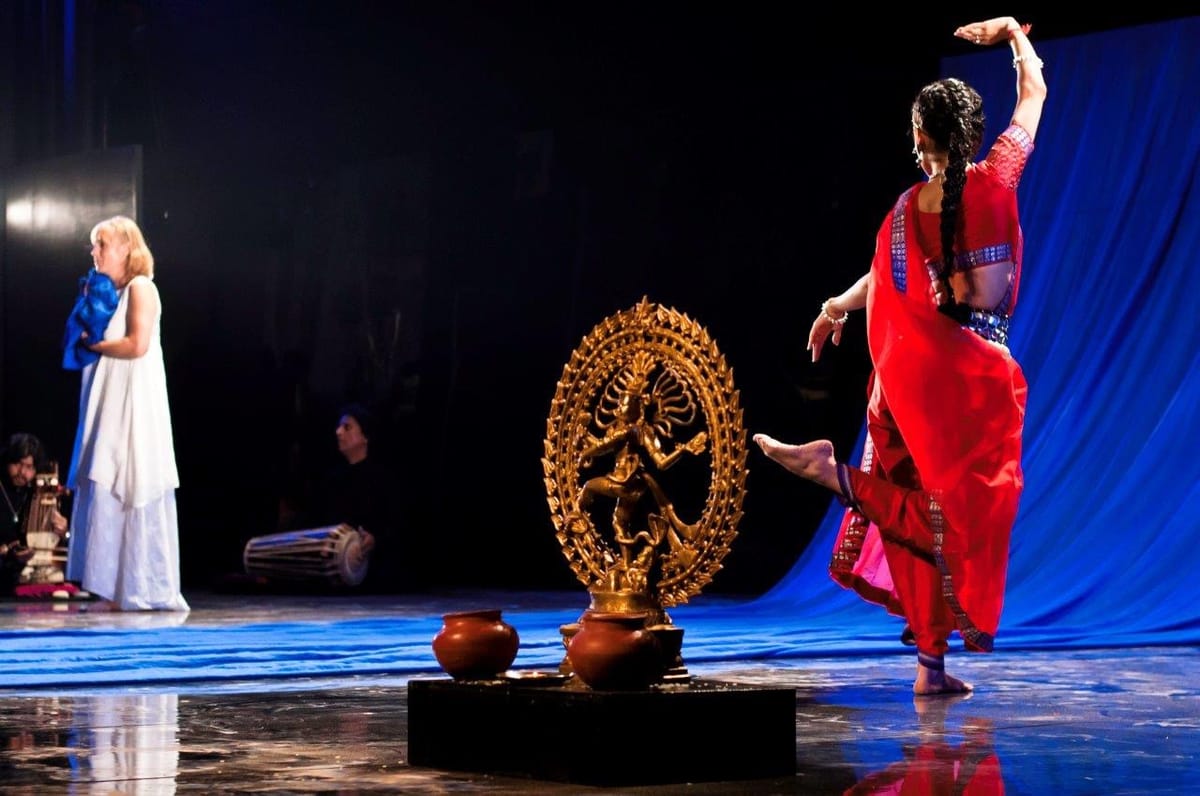
On the 20th of September 2016, 7 instrumentalists, an Odissi dancer and 8 Indian singers set off for France. They joined the vocal soloists and instrumentalists of Akadêmia in a series of performances of the opera Orfeo, Crossing the Ganges. Three years have passed since the premiere of the opera, so you can imagine the joy of meeting again!
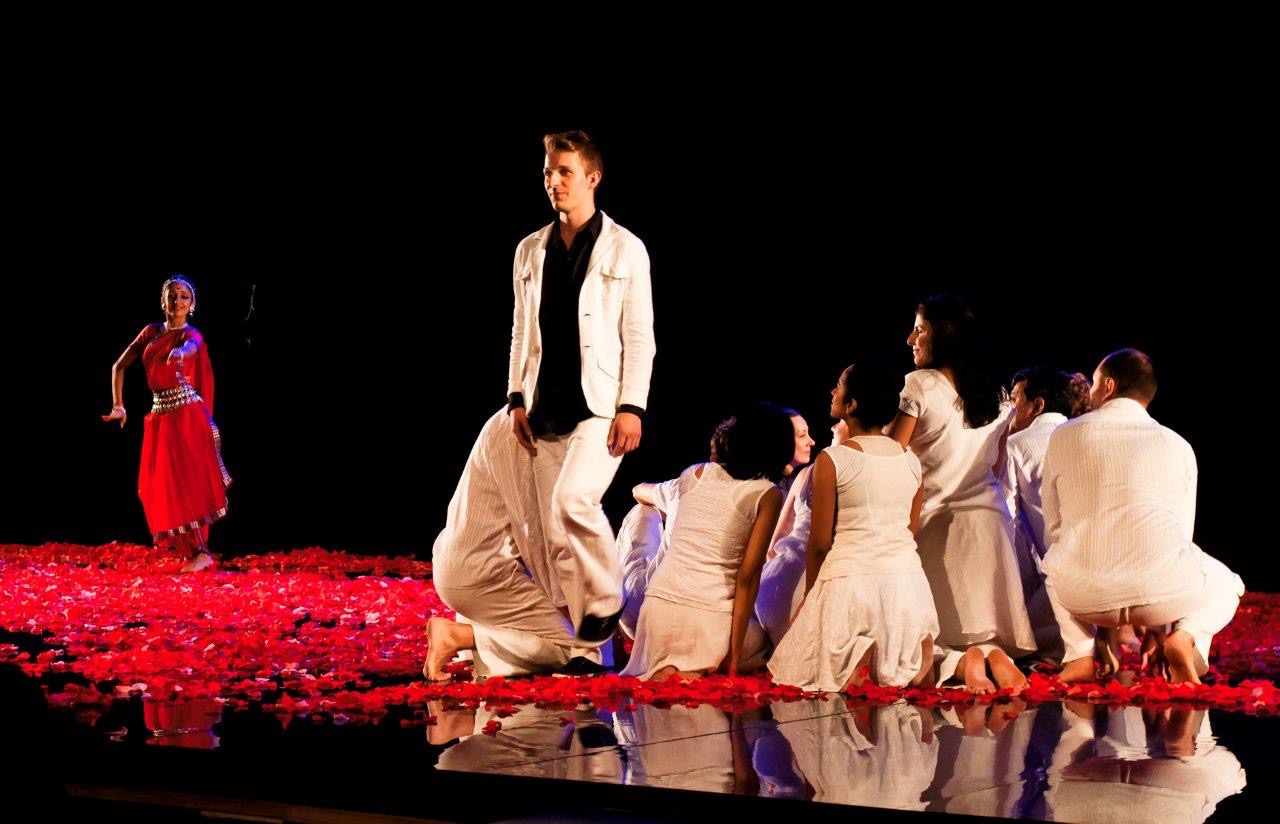
The myth of Orpheus, in which the most famous episode is Orpheus’ attempt to save his wife from the underworld through the power of his singing, provided the story for the librettos for the first operatic works in the history of music. But it is Monteverdi (1567-1643) who inaugurates the era of opera with his Orfeo, favola in musica (fable in music) in 1607.
The work, in five acts, contains a prologue in which Music appears as a character and tells the audience about her great power. The first two acts tell of the marriage of Orpheus and Eurydice and the death of the bride, bitten by a snake. Acts III and IV narrate how Orpheus succeeds through the magic power of his singing in crossing the threshold of the kingdom of death and obtaining the return of his beloved to the world of the living. Unfortunately he doesn’t heed the order given to him not to turn around and look at her while leading her out of the underworld, and thus loses Eurydice a second time. Act V as given by the librettist Striggio shows the death of Orpheus killed by the priestesses of Dionysus.
When we first had a look at the libretto as early as 2011, we were surprised by the slim presence given to Eurydice in the opera: a few lines, 3 minutes in total, but with incandescent music. She has to say everything in a few words. We imagined she could have come from a culture where the feminine voice was rarely heard. India came to mind, because of the strong affinities between classical Hindustani and early Baroque music.
And then we found ourselves in Delhi in 2012 ready to discover how to stage an opera with various elements of Indian culture, dance and music. This would never have been possible without Francis Wacziarg, attentive, curious and passionate partner, who co-produced the opera with Akadêmia.
We met around 20 Indian singers who attended two workshops at the beginning of 2013. They discovered from their teachers the basics of Baroque music: the importance of pitch, the relation between text and music, ornamentation, etc. Eight singers eventually participated in the adventure.
After learning about the special features of Monteverdi’s music, they experienced the demands of staging: stylized gestures, how to make the body alive on stage, how to give life to the group that makes up the choir. Three performances took place at Kamani Auditorium followed by a performance in Paris at the Cité de la musique in September and October 2013. It was an amazing experience to see the performance acclaimed in Paris in the presence of the Indian Ambassador!
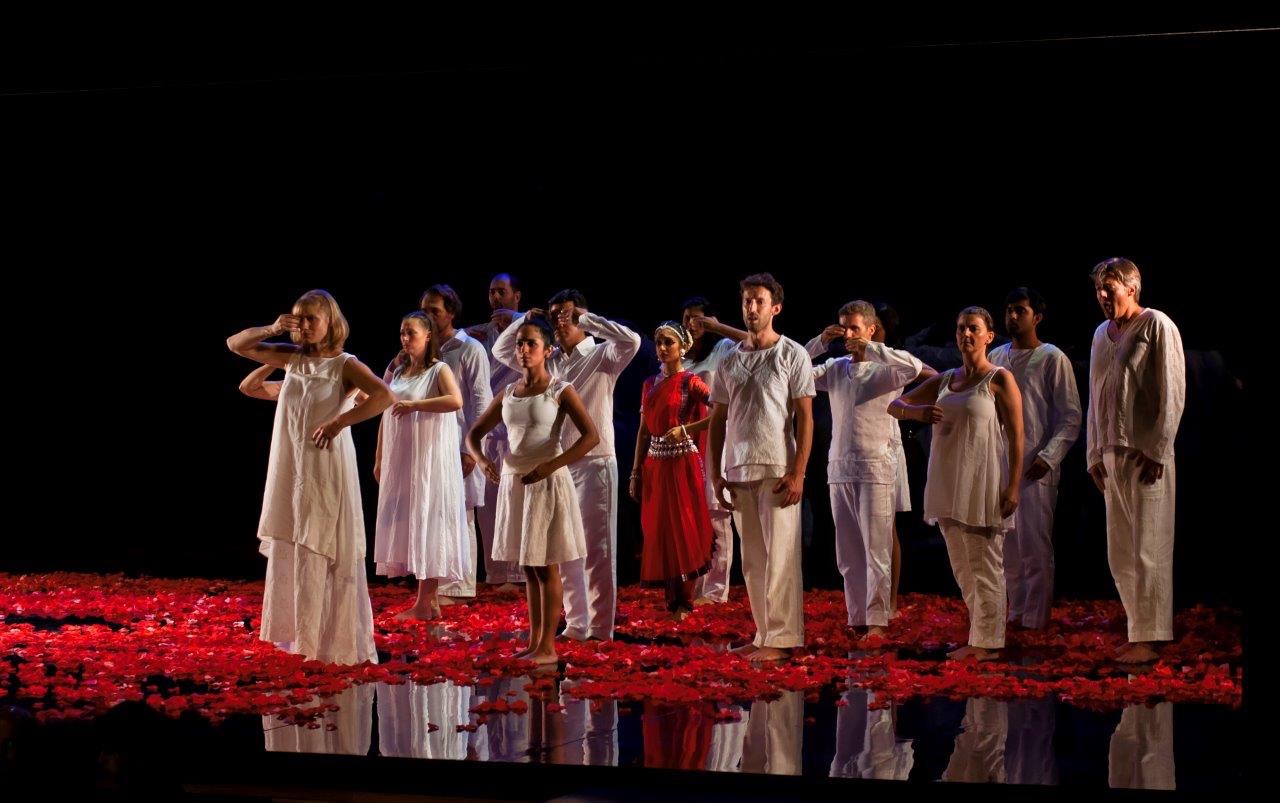
In 2014 and 2015 we continued our work on Western music, both vocal and instrumental. Two concerts in Delhi in 2014, Viva Vivaldi, 4 concerts in Bangalore, Delhi, Mumbai and Pune in 2015, Tales of the Night. We were supported in all this pedagogical work by the French Embassy in India and the Institut Français, but also by French companies in India: la Société Générale, Moët & Chandon, X-PM.
Along with training from individual vocal teachers, the work went on: two workshops gave the opportunity to rework the choruses of Orfeo (music and staging) in view of the French tour.
On the 21st of September 2016, the rehearsals started in Metz in the marvellous hall of the Arsenal (1000 seats), all in wood. The premiere will take place on the 1st of October 2016 and will be followed by two performances in Reims, city of the sacraments of the kings of France. The chance for Akadêmia to celebrate its 30 years, and that too in the company of its Indian friends!
This article has been translated from French by Justin McCarthy and Isabelle Jaitly.

